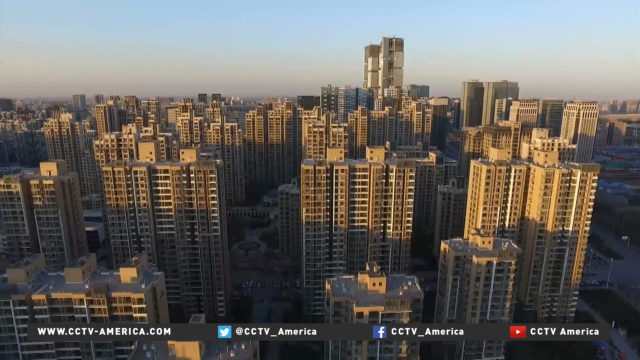The earlier phase of urbanization in China was often seen as an excessive conversion of rural land into urban areas.
In the work report delivered by Premier Li Keqiang at the beginning of the Two Sessions, he reaffirmed that emphasis will be placed on people during urbanization. He also set further reform of the household registration system as one of China’s priorities in 2016.
CCTV’s Xia Ruixue reports.

Having worked as a cook in Zhengzhou, the capital city of Henan province for 20 years, Cui Jingjie is finally able to afford to buy a small apartment in the city. His biggest dream is settling there with his wife and two children. Now it’s getting closer.
Buying an apartment in Zhengzhou means he can get a residency permit here and become a real urban resident.
But he’s still struggling with the decision. He’s afraid of losing his farmland once he gets an urban hukou. He’s also worried that his family won’t have the same access to welfare as locals, even if they’re granted the hukou.
Actually, according to the local authorities, migrant workers who register to live in the city will be able to keep their land in their village.
China is making big efforts to promote a new type of urbanization in recent years. But it’s not merely expanding cities and migrating people there from farm villages. That’s a capital-oriented urbanization.
Premier Li Keqiang, in a new government work report on March 5th, emphasized a people-oriented urbanization.
He said, “China will deepen the reform of the household registration system, accelerate urbanization among rural migrants and link urbanization with people, land and funds. Migrant workers who haven’t got the urban hukou should not be excluded from public services like education, employment and healthcare, etc.”
Some urban centres these days keep expanding regardless of their population growth, giving rise to ghost cities of empty streets and skyscrapers. The authorities failed to understand that the core of urbanization is not house building, but people.
People-oriented urbanization requires local governments to transform from an entrepreneurial actor in land dealings to a provider of public goods.
Geography professor Kam Wing Chan on China’s urbanization
CCTV America’s Michelle Makori interviewed Kam Wing Chan, a professor of Geography at the University of Washington about China’s shift to people-oriented urbanization.

 CGTN America
CGTN America
